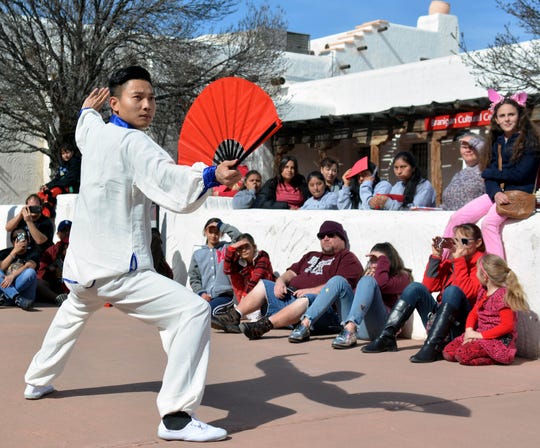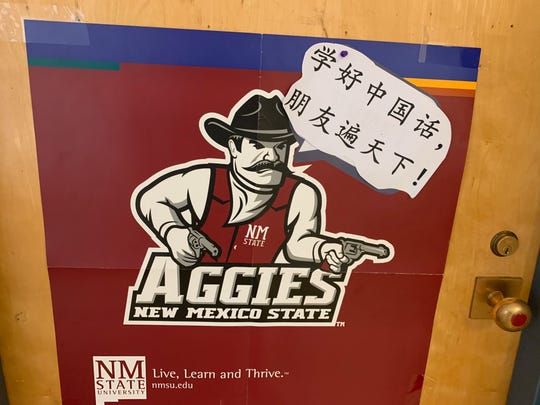Word power
"Good translators are vital to take Chinese literary works to overseas markets," says Ya Ding, a famous Chinese author and the president of the Association for the Development of China-France Exchanges.
In 1985, Ya was awarded the young translator prize by the French government for his Chinese translation of French philosopher Jean-Paul Sartre's The Age of Reason.
Ya knows well that literature is in fact the art of language. Over the past 27 years, Ya has been dedicated to literary creations in French. So far, he has completed seven French written books, all about China.
His first such book entitled Le sorgho rouge has sold 500,000 copies as soon as it was published, and became a best-seller in France in 1987, and also won eight literary awards there.
"People in Europe are keen on literature from China, but because of the lack of dissemination channels as well as the shortage of proficient translators, many of the best-selling books from China are relatively unknown in Europe," Ya says.
To reverse the situation, both Chinese writers and publishers are looking to boost the global impact of Chinese literature as more language experts emerge.
"The United States runs trade deficits in Sino-US merchandise trade, but in cultural products, China's deficit is even bigger. However, the situation is fast improving," says literary critic Zhang Qinghua, who is also head of the International Communication Center of Chinese Contemporary Literature at Beijing Normal University.
He says China's best-selling books and works of well-known writers are becoming increasingly appealing to international publishers, because overseas readers would like to see more "stories" reflecting contemporary China.
Statistics from the General Administration of Press and Publication shows China's imports to exports ratio of publication copyrights trade has slipped from 7.2:1 in 2005 to 3:1 in 2010.
It also shows that to date more than 1,000 Chinese contemporary literary works have been translated into other languages since China's reform and opening-up, of which more than 90 percent are novels and fictions.
The Chinese government has also stepped up efforts in this promotion campaign.
China's flagship literature magazine, People's Literature, launched an English version in November, marking a milestone in Chinese contemporary literature tapping into overseas audiences.
China Publishing Group, China's largest State-sponsored publishing conglomerate, exported 544 book copyrights in 2011 compared with 243 in 2006, an increase of more than 124 percent. The group has also established tie-ups with more than 60 publishing houses in 30 countries and regions.
"China should rely on publishers in developed countries who have rich international publishing experience to co-publish books about the nation to have more wide-ranging effects," Zhang says.
Literary works are more vivid to present the ecological structure of Chinese society, and to make others better understand the great social changes that have taken place in the last 30 years after China's reform and opening-up.
"The same results cannot be achieved through diplomatic channels," Zhang says.
Performance matters
Like literature, performing arts has also played an indispensable role in consolidating China's soft power.
In 2005, the Ministry of Culture issued a notice encouraging performing arts troupes to take an active part in international competitions and cooperation, as well as further promote the exports of commercial performances.
But after seven years' of efforts, the major problem for China's performing groups is reaching out to the Western mainstream audience.
While some companies are still searching for answers, some early birds have reaped the benefits.
Set up in 1991, Wu Promotion has been one of China's pioneering performing arts companies and event organizers. Every year the company organizes more than 300 concerts and events in Europe, and is one of the most successful private enterprises to take classical Chinese performance overseas.
"Europe's mainstream society does not exclude a foreign culture, but we should wisely choose our products," says Wu Jiatong, manager of the company.
"A good product not only meets the audience tastes but also passes profound cultural connotations."
"For example, if you stage Peking Opera in Italy, apart from a perfect show on stage, you also need to inform the audience off stage that like Italian opera, Peking Opera is the national opera of China and also an ancient performing art," he says.
After expanding its business operations to Europe and the Middle East, Wu Promotion is poised to enter the US market in 2014.
"It is a gradual process for China's performances to enter mainstream Western society, and may take the efforts of several generations."
"We hope in the near future we cannot only see China-made clothes and shoes in New York, Paris or London, but also people lining up to buy theater tickets for Chinese performing arts."
Big disappointment
Film, one of China's most important soft power ingredients, has not seen the kind of success that policymakers envisaged nor has it made box-office waves.
While China's domestic box office revenue has climbed to new highs in the past few years, directors and producers are facing an embarrassing situation of receiving hardly any attention in the Western markets.
Sergei Vladimirovich Bodrov, a two-time Academy Award-nominated Russian-American film director, uses a metaphor to say that Chinese filmmakers need to learn proper story-telling languages that are accepted by the West.
"Filmmakers are like street musicians - you have to attract passers-by in a few seconds to let them throw money to you."
But some insiders are optimistic that Chinese filmmakers may soon make major breakthroughs.
China Lion Film Distribution Inc, a film distributor in North America and New Zealand, has been partnering with two top film production companies in China, Huayi Bros and Bona, to screen Chinese films in major US cities since 2010.
The company chooses 12 to 15 Chinese films every year to exclusively screen them in the US and Canada, with about 20 to 37 screens dedicated to these films all year long in Los Angeles, New York and San Francisco.
Joshua Lo, marketing coordinator of China Lion, says the audiences are mainly overseas Chinese, "but if the film is unique such as including historical topics, local Western audiences would show interest, too".
Since 2010 when the screenings began, the influence of Chinese films has been growing, Lo says, and he estimated that in three to five years, Chinese films will make major breakthroughs in overseas markets.
"Some avant-garde film directors like Jia Zhangke have already established themselves at the international film festivals. So we just need to keep trying."
He says it is a good sign that more and more Chinese films are participating in international festivals.
Some film insiders point out that the importance of developing China's film industry is not just to earn bigger box office receipts.
"The biggest meaning of Hollywood films is that every year, thousands of millions of people around the world watch them, through which they learn about American values, culture and way of life," says Zhou Tiedong, president of China Film Promotion International, a government organization designated to promote Chinese films.
However, as more Chinese cultural products make inroads in the overseas markets, there should also be awareness that such kind of products need a longer time for success.
"Cultural products cannot be exported in the same way as we export cars or financial services. Hard-sell promotion campaigns do not necessarily deliver results," Vassiliou says.
"In the cultural sector, the relationship between nations is crucial for creating interest, and therefore market opportunities."
Contract the writers through
liulu@chinadaily.com.cn





 Reply With Quote
Reply With Quote



















